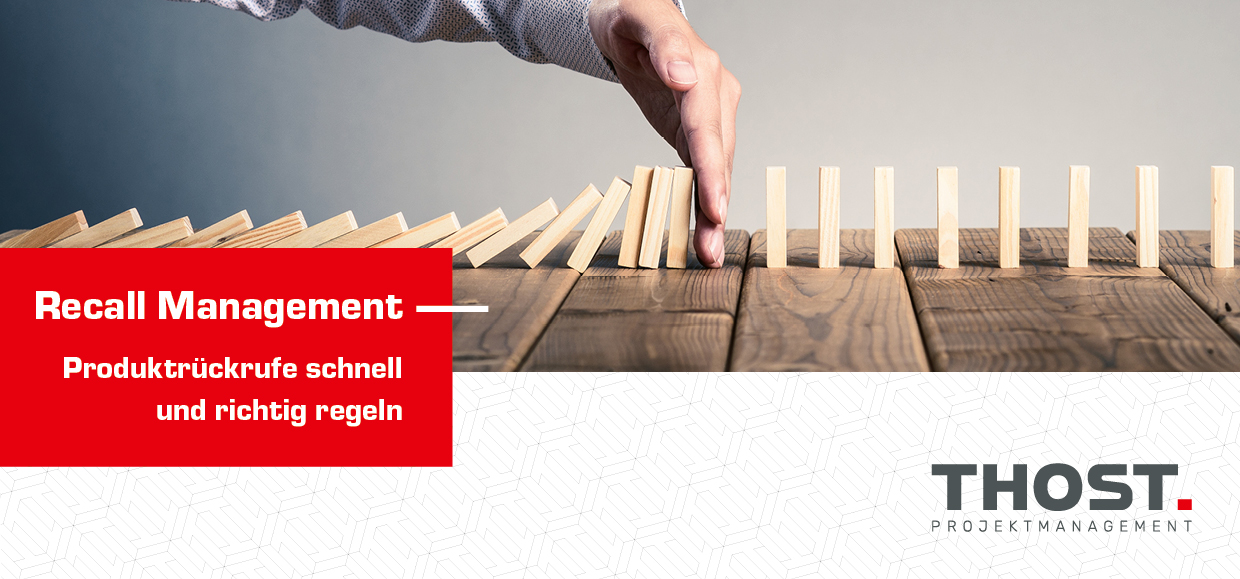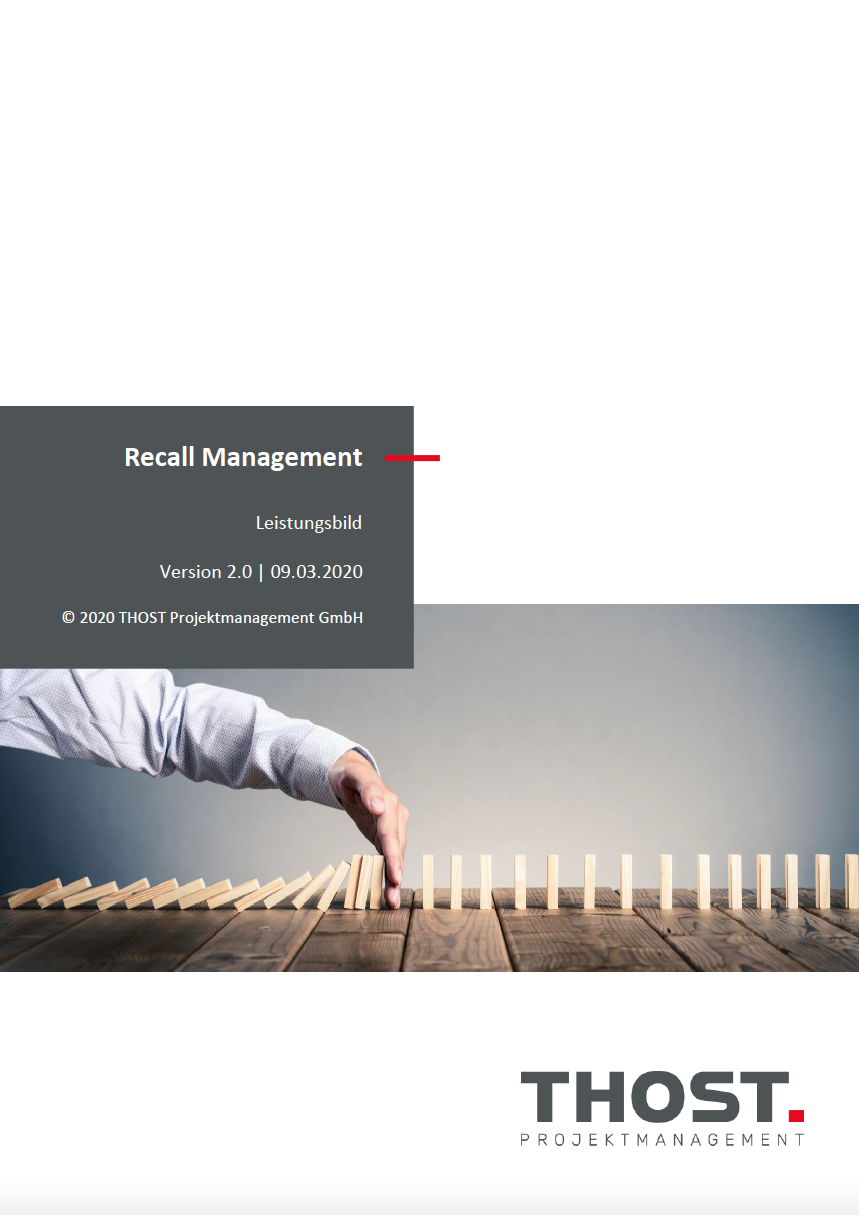Managing product recalls in a fast and efficient way
A product recall is announced almost daily in Germany – from consumer goods to batteries to technical components, appliances, cars and software. The cost of recalling a product is €11m on average. The damages incurred are often may times higher.
THOST prepares customers for product recalls or exchanges and manages their execution.
The primary objectives in such an emergency are:
- Re-establishing the safety and quality of the product on the market as quickly as possible
- Minimising and managing the impact on the brand and image
- Minimizing internal workload and avoiding disruption in unaffected areas of the supply chain
Our objective is the prompt and high quality completion and documentation of product recalls or exchanges in line with insurance requirements.
Our service portfolio can be divided into three phases:
The target of the activation phase is the rapid creation of transparency, structure and thee ability to act:
- Conducting crisis management meetings to assess the risk level and identify short, medium and long term corrective measures as well as recall and exchange strategies
- Kick-off with recall team
- Creation of a communication plan with the relevant stakeholders including the definition of reporting and information requirements
- Configuring and setting up the entire recall process (roles and responsibilities) as well as sub-processes such as communication, and material, documentation and invoice flows.
The result: A recall team capable of action with agreed roles, responsibilities, scope and objectives
The target of the execution phase is the quality and dealine-oriented handing of the recall or exchange project with:
- The development and operation of the project database to manage the recall at article level and to document quality and insurance related data
- The development and maintenance of a document archive for tenders, contracts, reports and invoices
- Management of communication as well as the creation of models and templates
- The creation of quantity structures as well as demand, production and supply planning
- The preparation and implementation of distribution concepts (sequence and route planning, spare part deliveries, serving dates, incoterms, international trade regulations, etc.)
- Invitation to tender and awarding contracts to partners
- Coordination of customer support interfaces such as call centres, on-call services, hotlines, email addresses, online contact forms, information or FAQ websites
- Coordination of test / exchange / return dates
- Coordination of logistics service providers for shipping and storage
- Coordination, checking and documentation of service reports and invoices
- Establishment of a reporting and consultation system
- Conducting discrepancy analyses and developing corrective measures
- Compilation of the final project report including databases, project organization and process documentation
- Holding the final project meeting with a closing presentation and report
The Result: Final report on the product recall or exchange
The target of the learning phases is the identification of improvement measures by:
- Optimising the emergency response
- Collecting lessons learned for CIP (Collective Improvement Process) possibly as a workshop
- Identification of possible strategies to prevent further error and guarantee long-term quality control
- Identification of early indicators for future crisis situations
The Result: optimised emergency response.
Your contact person

Head of Center of Competence
Supply Chain Management
Florian Thost
Dipl.-Wi.-Ing.
APICS CSCP®
Phone.: +49 721 499718-10
E-Mail: This email address is being protected from spambots. You need JavaScript enabled to view it.


